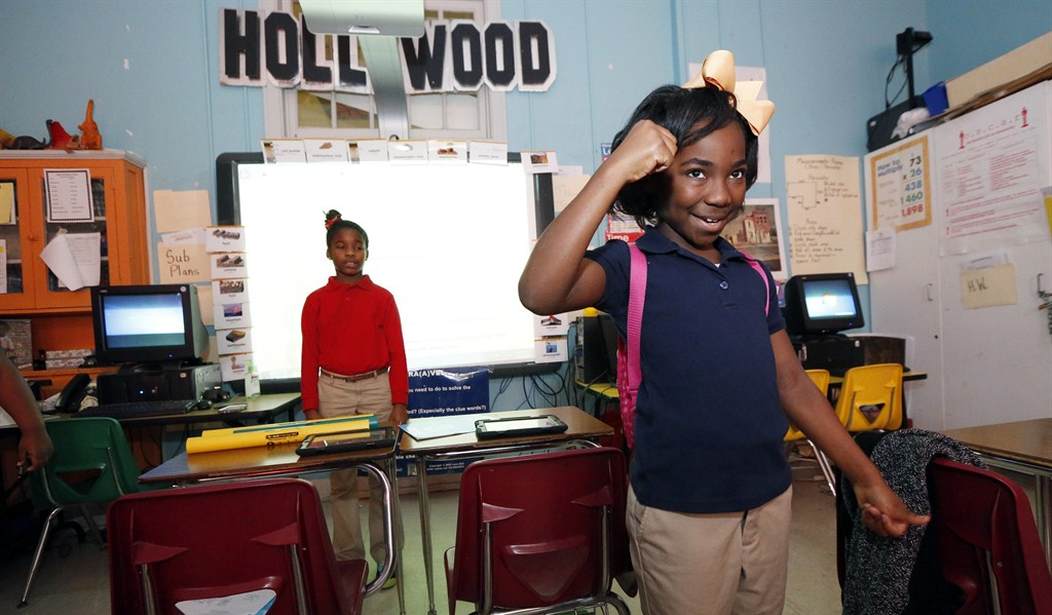Hey, Horace, looks like you might have been wrong. Dead wrong.
That is, making good, respectful citizens isn’t best left to government schools.
Way back before the Civil War, Horace Mann promoted the “common school” not merely to increase literacy and certainly not to prepare a majority of students for college. The movement that gave birth to the modern public school system in America was designed to inculcate good citizenship. The idea? Put all kids through a “shared experience.”
The idea was to promote “American” ideas of democracy and republicanism into the minds of children who, Mann feared, were too readily sucked into anti-American notions.
He most feared immigrants, especially Catholics. He sought to regiment children from all walks of life via truancy laws and taxpayer support of schools.
And he wanted to get a crack at indoctrinating generation after generation.
Americans sported a quite high literacy rate before Mann’s reforms, and, today, not all that impressive a rate after more than a century of “public education.” But who really cares about that? “Socialization” is what counts. (OK, that was later. John Dewey and his crowd, I believe. But it’s not that dissimilar a notion, really.)
A few years ago, Mann’s notion was re-iterated by a college professor in an essay called “The Perils of Homeschooling.” Public schooling, he wrote,
is one of the few remaining social institutions — or civic intermediaries — in which people from all walks of life have a common interest and in which children might come to learn such common values as decency, civility, and respect.
OK. Take a deep breath. Are we really supposed to believe that public schools instill decency, civility, and respect?
In “Does Homeschooling or Private Schooling Promote Political Intolerance? Evidence from a Christian University,” Journal of School Choice: International Research and Reform, 8(1), Albert Cheng went considerably further. He studied college kids at a place that would give a liberal-progressive apoplexy: a Christian college. He set as his research focus students’ tolerance and concern for the rights of minorities (conceived in various ways, contexts). And he asked the students questions. (This is how most studies are done, by the way. Both psychology and sociology tend to be heavily weighted with studies of college students. Why? They’re the nearest at hand to researchers. What’s interesting here is the look at college students at an institution that some folks might fear contains more “bigotry” than on secular school campuses.)
Recommended
So, what did he conclude? That private schooling does not decrease social tolerance, and “those [college students] with more exposure to homeschooling relative to public schooling tend to be more politically tolerant.”
Why might this be the case? Cheng himself offered two possible reasons — greater self-actualization in homeschooling, and religious instruction — but I can think of a few more.
For one, public schools bring together many, many kids. Hordes of kids. These students are not spending the bulk of their explicit social time interacting with adults. Instead, they interact with each other. In the halls. In the cafeteria. On the buses. After school. Put into large groups — often mobs, too large to responsibly handle — they form sub-groups, cliques. Some are excluded, even bullied. Others succumb to the other elements of tribalism. The regimented experience with adults serves to create a convenient enemy. No wonder, then, that this “shared experience” too often results in conformity to groupthink. And less tolerance. Especially for the outsiders.
Meanwhile, homeschoolers are doing something different than the crowd. And they are interacting with small groups, one on one, adults as well as children of other ages. Such inter-personal and small-group interaction is ideally suited to the growth of responsibility. No wonder, then, that homeschoolers appear more willing to accept others doing their own thing, even if not the norm.
And tolerance of others — including “the different” — along with respect for those others’ rights, is the hallmark of freedom.
So, hooray for homeschooling! The cradle of liberty.
























Join the conversation as a VIP Member